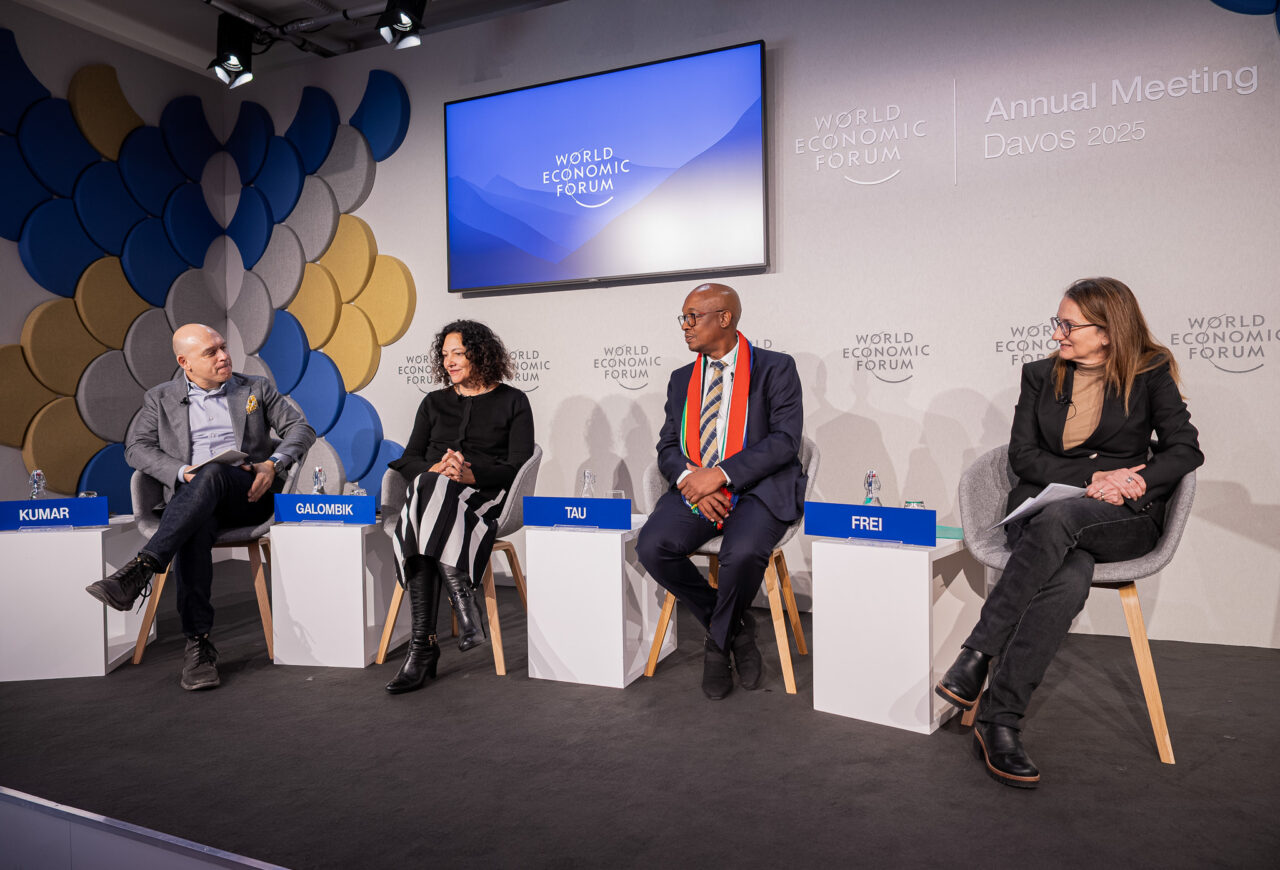Strengthening social enterprises in developing countries improves stability and supports growth, benefitting the global economy, according to speakers at the World Economic Forum in Davos.

Investment in social enterprises is crucial at a time of growing income disparities around the world, given their role in creating jobs, providing economic stability and fortifying global supply chains, attendees at the World Economic Forum (WEF) in Davos were told.
Daniel Nowack, head of social innovation for the Schwab Foundation for Social Entrepreneurship and the WEF, highlighted research launched to coincide with the event showing that engagement with and investment in social enterprises by governments and business made economic sense as well as supporting an equitable transition.
“Social enterprises have always inspired us to rethink business as a force for good, but they have also become an economic force. We now know that there are 10 million social enterprises worldwide generating $2trn in annual revenue, which is more than the apparel industry, and they’re employing 200 million [people]” he told a Davos session on Social Innovation in Action.
A new report from WEF and the Schwab Foundation – Unlocking the Social Economy: Towards Equity in the Green and Digital Transitions – looks at how bolstering the social economy creates jobs, raises living standards and empowers marginalized groups via community-based solutions and impact investing.
Another just-published paper, the State of Social Procurement 2025 report, produced by Schwab and Austrian tech company Prewave, analyses over 150,000 reported supply chain events between January 2023 and October 2024. It concludes that 19% of material events affecting supply chains are related to social issues, second in the list only to legal and regulatory issues, which accounted for 26% of events, and ahead of environmental incidents (13%).
The authors suggest that by working with social enterprises, companies can support fair labour practices, reinvest in local economies and, in doing so, strengthen their own supply chains, as well as creating benefits for workers and their families.
Corporate initiative
The Schwab-backed Rise Ahead pledge, launched at Davos last year, calls on big companies to commit to new activities or expand their existing efforts in social innovation. Signatory companies, which now number 25, invested over $270m in social innovation in the first reporting year of the initiative, and have committed to increase that by an average 25% in the next year.
The latest signatory is Paris-based Schneider Electric, the global energy management and automation firm, which has a foundation that support and trains budding young entrepreneurs in the area of energy access.
Barbara Frei, the company’s CEO, industrial automation, told Davos delegates that Schneider’s next social action focus was on the energy transition in Asia. She said success would depend to an extent on governments facilitating investment by reducing red tape.
“You could kill a lot with bureaucracy,” she said. “But I think a lot of responsibility is also with us, and specifically big corporates, to have the knowledge. They have the capability to coach people, and should really give that [expertise] to those startups, to those social entrepreneurs, because that really gives sustainable growth.”
Building on existing structures
Parks Tau, South Africa’s trade and industry minister, told the conference that his country’s social and solidarity economy of more than 850,000 social enterprises, cooperatives, and mission-driven organisations provided a strong foundation for social innovation. South Africa’s championing of the social economy means it could be a hot topic during 2025, a year in which the country holds the presidency of the G20 group of developed and developing nations.
Tau said the South African experience showed it was better to engage with people on the ground rather than just imposing solutions from outside.
Tau noted a tendency for those supporting social innovation to try to impose solutions on communities, rather than working more closely with existing organisations that already had an understanding of what was possible or required, Support for social entrepreneurship culture should be based on the “existing DNA” of social organisations, he said.
Muhammad Yunus, the microfinance and impact investing pioneer, told the same session that more needed to be done to promote entrepreneurship among young people in the developing world focused on critical areas in order to create a fairer world.
“All the money you earn goes to the top. We have to reverse that process completely.” he said. The 3Zero Club that Yunus champions aims to do this by supporting small groups of young people to come up with entrepreneurial solutions around the themes of zero net carbon emission, zero wealth concentration for ending poverty and zero unemployment.






